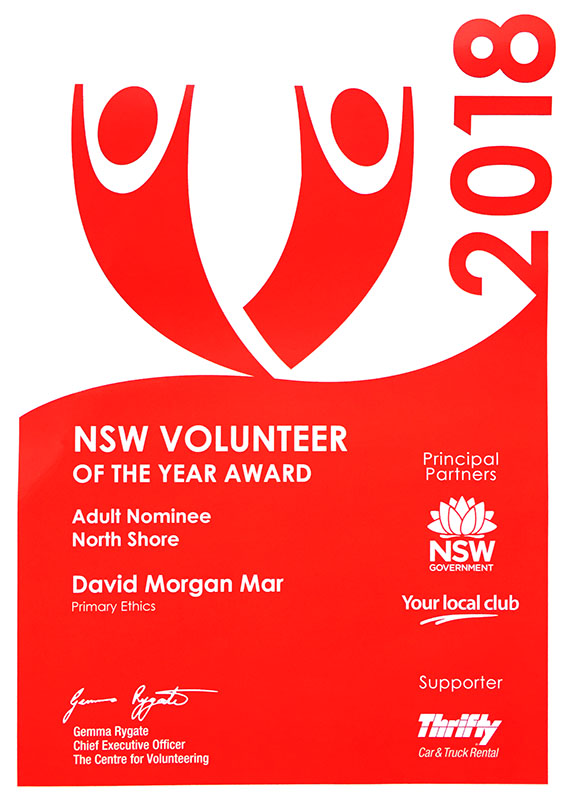Good news for Ethics education in New South Wales! I’m nearing the end of my second school year doing volunteer teaching of Primary Ethics, as an alternative to religious education in NSW primary schools. Up to now, the enrolment procedure for ethics has been complicated:
- At the start of each year, parents were sent a form asking them to write down their child’s religion among other enrolment details.
- If the parent wrote down a specific religion, the child was automatically enrolled in scripture classes for that religion (if available at the school). If the religion is not available or the parent wrote “no religion”, a letter is sent back explaining the religious education options or the fact that the parent may elect to not enrol their child in any religious class.
- If the parent at this stage chooses to enrol their child in a religious class, that happens. If they choose no religious class then they are sent another letter explaining that there are two options: “non-scripture” or ethics.
- If the parent chooses “non-scripture” or does not reply, the child is enrolled as “non-scripture” (which is merely a supervised free time in which no teaching instruction of any sort is given). Only if the parent chooses ethics at this time is the child enrolled in Ethics classes.
But from 2019, thanks to pressure from support groups and supporters on both sides of politics, the procedure has been revised and simplified. From now on, at the start of the school year, parents will be sent a letter with check boxes for all of the available religious options, non-scripture, and Ethics. They will see all of the options up front and be able to choose Ethics immediately, even if they are raising their child in a religion but prefer to have Ethics education instead of religious education.
New of this change has been reported on the NSW Department of Education website and by the Sydney Morning Herald.
Oh! And in other news, I received this for my work in Ethics teaching this year!

I’m not The Volunteer of the Year – this was just a nomination for the award in my region. But very nice to receive some recognition!
